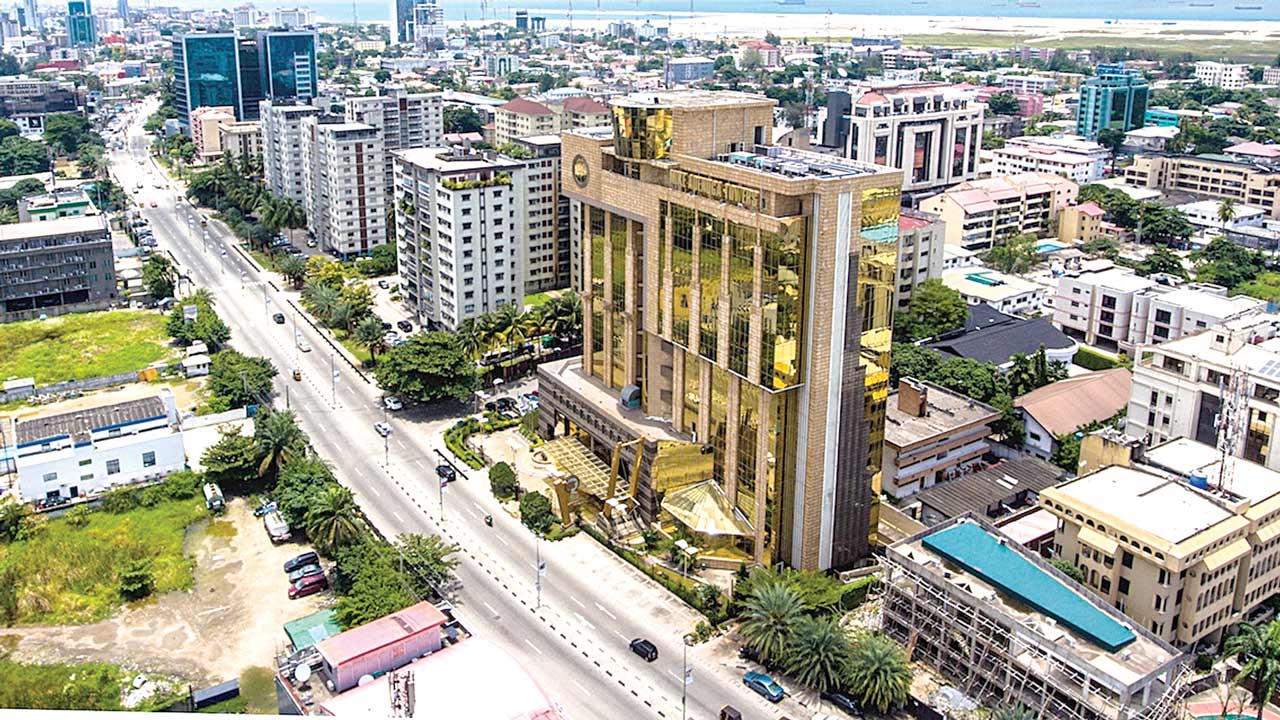- Lagos Midstream Jetty To Save N43bn Annually
ASPM Limited, a subsidiary of OVH Energy Limited, has achieved a ground-breaking milestone as it launched its Lagos Midstream Jetty (LMJ) located at the Lagos Apapa Harbour.
The Lagos Midstream Jetty is West Africa’s first privately owned mid-stream jetty, conceived by Oando PLC to increase the delivery capacity and offloading efficiency of petroleum products into marketers’ storage facilities in Apapa Lagos.
The Lagos Midstream Jetty is expected to alleviate the perennial infrastructural hiccups experienced in Apapa, eliminating the lightering and demurrage charges currently being incurred by petroleum marketers by N8.3 billion ($23million) and N9.8 billion ($27million) respectively.
Additionally, the jetty will reduce discharge time from 21 to 3 days as well as increase product availability.
With a draft of 13.5metres, Length Overall (LOA) of 210m and a capacity to receive 45,000 DWT vessels (deadweight ton), the Lagos Midstream Jetty will discharge at up to 800 m3 (cubic metres) of petroleum products per hour.
The Jetty will operate 24 hours a day to supply products into storage facilities situated within the Apapa axis, via a 3kilometres submarine pipeline network linked directly with up to 200,000MT storage belonging to major and independent marketers in Nigeria. LMJ which is configured to receive all white products namely petrol, diesel and kerosene, consists of a simple horizontal platform, five berthing dolphins, and four mooring points.
In comparison to available jetties, the Lagos Midstream Jetty has the capacity to receive larger vessels of up to 45,000 DWT in one lot thus reducing the current necessity of bringing in smaller volumes of petroleum products in several batches.
This will result in significant cost savings on lightering and generating economies of scale advantages for marketers.
Commenting at the launch, Chairman of OVH Energy, Wale Tinubu, said: “The Lagos Midstream Jetty was conceived as an innovative industry solution to the perennial challenges marketers faced in the importation of petroleum products.
“Over the past 30 years, marketers have spent approximately NG1.6 trillion ($4.5 billion) on lightering, with 90 percent of this spend flowing out of the country. Today, we have delivered a first class piece of engineering that meets global standards, which is the first of its kind in sub-Saharan Africa and will be of invaluable benefit to the industry and nation at large. I must thank our regulators, bankers and contractors who believed in us from the start. It is a proud moment for Oando PLC who conceived the idea and OVH who have taken up this mantle. From conception to realisation, the idea of the Lagos Midstream Jetty is now a reality and is indeed another infrastructural success for us, our nation and the continent.’’
Commenting further on the facility, the General Manager of ASPM Limited, a subsidiary OVH Energy, Mr. DejiOsikoya, stated: “The Lagos Midstream Jetty is an innovative infrastructure investment designed to radically transform the efficiency of Nigeria’s downstream landscape and boost Nigerian’s petroleum downstream economics. We expect the jetty to become an extremely valuable and viable portfolio especially for marketers, reducing delays caused by infrastructural limitations in Lagos, thus improving marketers’ service delivery and profitability and reducing the financial drain on the nation’s resources.”
The jetty is equipped with a gangway tower to facilitate vessel discharge operations and an on-shore control station at Alapata, Apapa which serves as the central control centre for its off-shore and on-shore operational activities fully equipped with an automated process control system.
“The Lagos Midstream Jetty (LMJ) is fully operational, having berthed 10 vessels and discharged products totaling 255,000 metric ton of cargo demonstrating its potential as a functionally efficient and safe facility. With a monthly volume capacity of 240,000metric tons, or 240,000,000 litres, the Lagos Midstream Jetty is set to substantially boost supply of petroleum product into Nigeria, and contribution estimated NGN13.1 billion ($36 million) cost reduction in product imports and associated transactions,”Osikoya further added.


 Naira4 weeks ago
Naira4 weeks ago
 Naira4 weeks ago
Naira4 weeks ago


 Naira4 weeks ago
Naira4 weeks ago




 Naira3 weeks ago
Naira3 weeks ago
 Commodities4 weeks ago
Commodities4 weeks ago


 News4 weeks ago
News4 weeks ago


 Banking Sector4 weeks ago
Banking Sector4 weeks ago
 Travel4 weeks ago
Travel4 weeks ago























